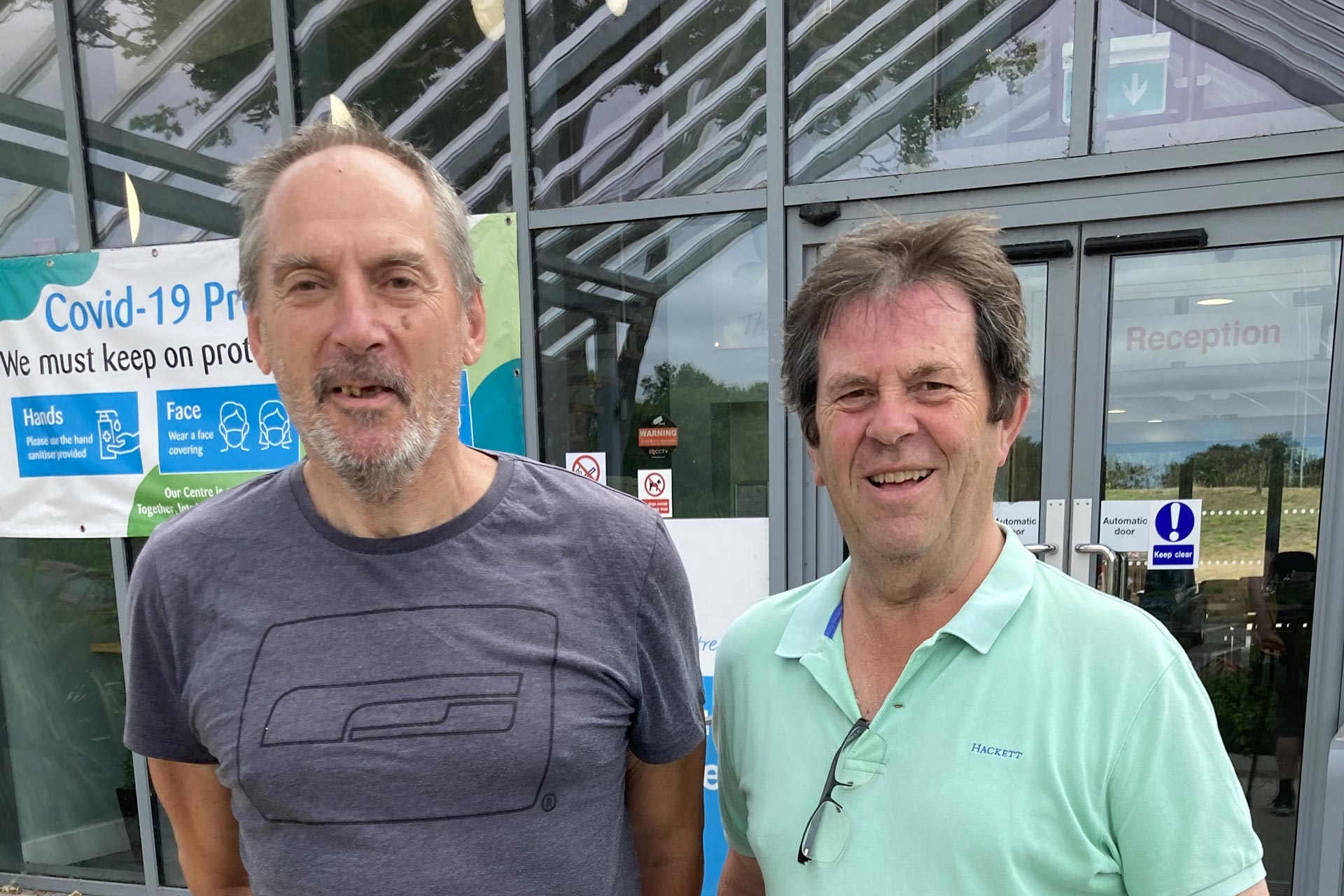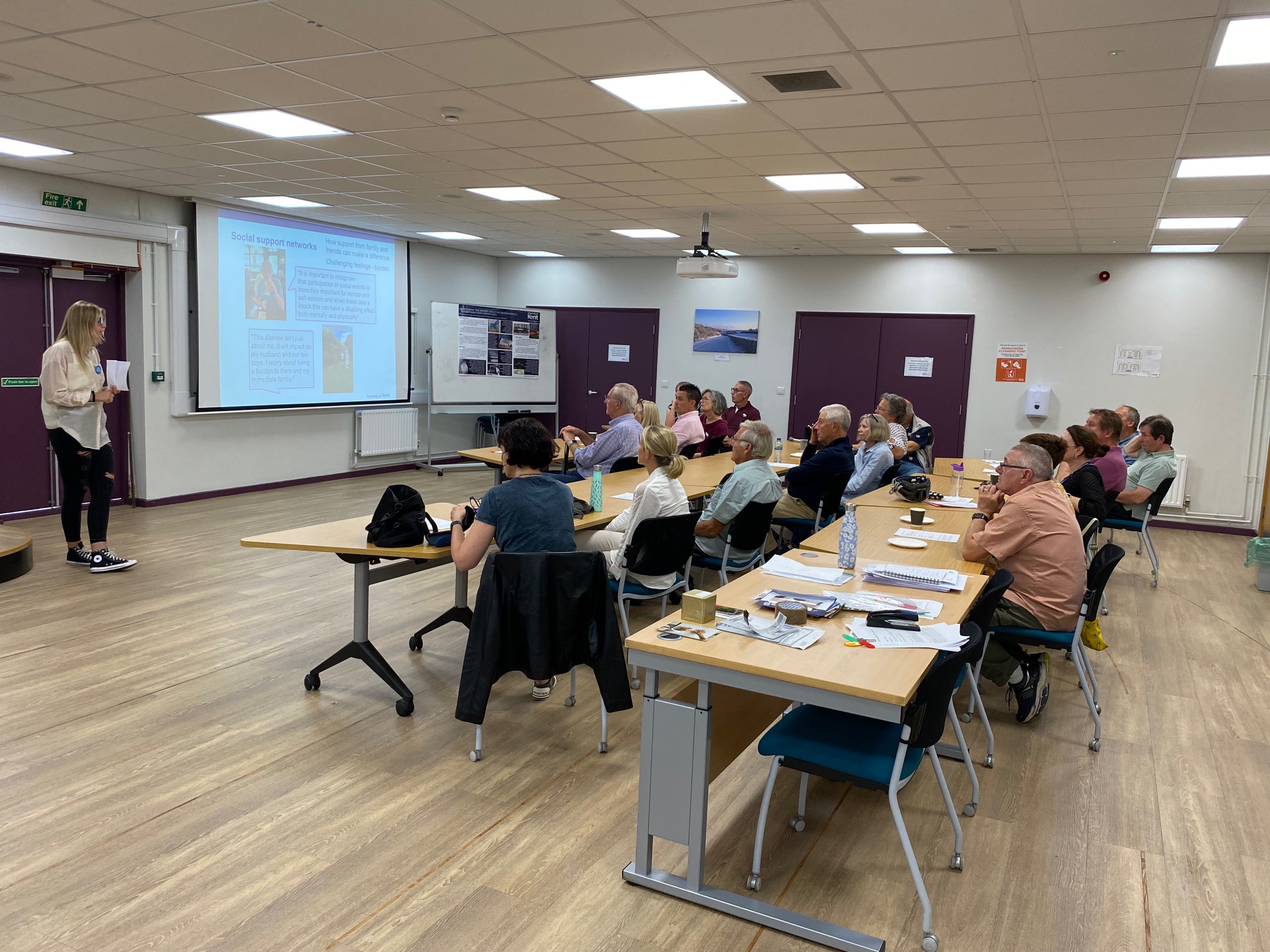Dr Laura Smith, a Psychology Researcher, shares some interesting findings from a recent study exploring people’s experiences of living with and managing the hidden aspects of Parkinson’s disease.
What did the study aim to do?
People with Parkinson’s are affected by the condition in different ways. Some of the symptoms experienced are hidden or difficult to observe by just looking at someone. These include cognitive problems, fatigue, pain, and feeling anxious or low. Because these symptoms are not always visible to others, they can go undetected, meaning people do not always receive the support that they need to carry out everyday activities.
This study aims to explore how these hidden symptoms are experienced by people living with neurological conditions and understand how people can be better supported to live well for longer.
How was the study carried out?
This study used a method called ‘photovoice’. In photovoice research, people take photos to capture their experiences, and then write narratives to explain why each photograph is meaningful to them. Photovoice is a way of sharing people’s personal experiences as they happen in ‘real time’. This offers important insights into how people experience health issues which can then be shared with the general public, healthcare providers and policy makers.
Eighteen people took part in the study and shared their experiences. Participants took photos on their phones and digital cameras over approximately two weeks to capture their experiences of the hidden aspects of Parkinson’s disease in relation to their quality of life and ability to carry out daily activities. The researcher team then collated everyone’s data and looked for common themes that people spoke about, as well as things that were different from one another.
The research team presented their initial findings to people who took part in the study and healthcare professionals and sought their feedback on these early ideas. Attendees provided helpful comments which informed the final results.
What did the study find?
We found four main common themes which brought together what people spoke about in their narratives.
A main theme was around emotional wellbeing. People described their emotional responses to the symptoms they experience. Common emotions were loss, sadness, embarrassment, frustration, and anxiety. This theme also covered the different strategies people used to alleviate emotional distress and maintain positive mental wellbeing. For example, exercising or having a positive mindset.
The next main theme concerned sense of self. People highlighted the importance of preserving their identity and independence. Taking part in the activities they used to do helped to boost self-esteem and give a sense of normality. People also talked about how they have adapted to their condition, by managing their symptoms to help them live well for longer.
The final theme highlighted the importance of social support. People discussed how the hidden aspects of their condition have impacted their relationships with the people who are close to them. Feeling like a burden to loved ones or feeling disconnected from others were common concerns. People talked about the importance of engaging in social activities to feel supported by others, and to avoid feeling excluded or isolated.
How can the findings benefit people with Parkinson’s?
Our findings provide insights into how the hidden aspects of Parkinson’s disease are experienced and how these symptoms can impact daily activities and wellbeing. The results highlight that healthcare professionals who work with people with Parkinson’s need to be aware of the challenges that can arise through living with hidden symptoms. These data will help healthcare professionals to discuss hidden aspects and provide support where needed.
We believe this study highlights the importance of physical exercise for mental and physical wellbeing for people with Parkinson’s. We therefore plan to offer a range of group exercise classes at the Parkinson’s Centre for Integrated Therapy as well as some individual physiotherapy sessions to ensure people can access this.
We also believe that the study findings suggest the potential usefulness of psychological therapies for people with Parkinson’s who are struggling to cope with the condition or need some support to manage their symptoms. We plan to offer different types of psychological support at the Parkinson’s Centre to meet this need. This will include support for people with Parkinson’s as well separate sessions for their family members. We will also ensure there are lots of opportunities to socialise and have fun!
We are very grateful to everyone who took part in the study.
Patient and Public Involvement Perspective
Peter Roger and Francis Ball are working with us to shape the development of the Centre and offer their expert perspective as people living with Parkinson’s. Here they share their experiences of being involved in the study and workshop.

“Several of us attended a workshop at the University on July 28th to review and discuss the results of the photovoice project run by university researchers over the preceding months. The project was intended to identify hidden difficulties encountered by people with Parkinson’s but also to highlight coping strategies that enable people to continue activities that benefit their health and wellbeing. This project was informed by photographs and accompanying written explanations that were submitted by many of the attendees and a number of these were on display. The findings of this project are intended to inform the wider health community and future research. There was a lively discussion with many participants highlighting issues around wellbeing, positivity and maintaining social interactions.
Laura and her team proposed that similar exercises were likely to be run in the future, albeit likely taking a different form. We are looking at whether there may be a way in which we can leverage the work undertaken. We made a number of new contacts with a view to expanding our group.”


